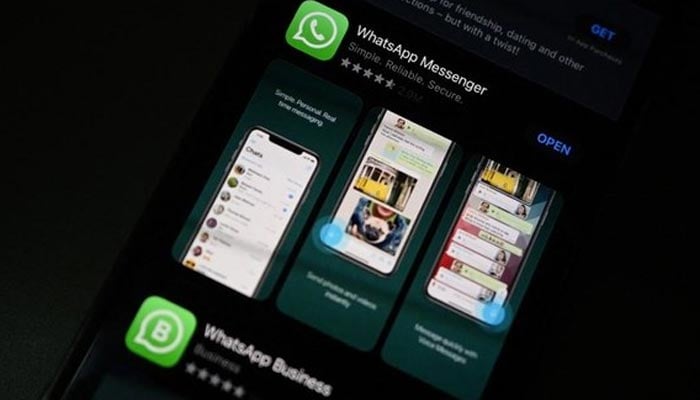WhatsApp security: How does end-to-end encryption work?
The meta-owned app claims that they value its user’s “privacy and security”
WhatsApp, the Meta-owned short messaging application, shared an information bite about end-to-end encryption on Twitter.
Taking to the micro-blogging site, WhatsApp shared how its much-appreciated feature works to ensure user’s security.
“It might sound complicated, but the security it provides is built in automatically to every personal message you send,” WhatsApp tweeted.
Using an info-graphic, the tweet further underlined the highlights of the default feature which ensures that only the user and the person they’re chatting with can see what is sent and received.
“No one, not even WhatsApp, can see your personal messages,” the info-graphic read.
The meta-owned app claims that they value its user’s “privacy and security”, which is why they have built end-to-end encryption into their app.
“When end-to-end encrypted, your messages, photos, videos, voice messages, documents, status updates and calls are secured from falling into the wrong hands,” WhatsApp states on its website.
For personal messaging, the feature ensures privacy when a chat between the user and the person they’re chatting with remains private. This is an automatic feature and the users does not need to turn on any special setting to help protect their messages.
“With end-to-end encryption, your messages are secured with a lock, and only the recipient and you have the special key needed to unlock and read them,” details on WhatsApp’s website read.
For business messaging, each message is secured by the same Signal encryption protocol which protects messages before they leave the user’s device.
In this case, the message sent by a user to a business account is delivered securely. However, users must know what happens when the message is received by the business account.
“Once the message is received, it will be subject to the business’s own privacy practices. The business may designate a number of employees, or even other vendors, to process and respond to the message,” WhatsApp states.
This give business the permission to choose Meta — the application’s parent company, to “securely store messages and respond to customers”.
Meta, on the other hand, will not use the sender’s messages automatically to inform advertisers. But businesses can use the received chats for their “own marketing purposes”, which may also include advertising on Meta.
The application allows users to contact such businesses to find out about their privacy practices, WhatsApp informs.
Users can find more information on this by reading WhatsApp’s white paper on their website.
WhatsApp shares that the company has witnessed multiple instances of criminal hackers illegally acquiring immense private data and have abused technology to blackmail users with their stolen information.
“Since completing the implementation of end-to-end encryption in 2016, digital security has become even more important,” the company emphasised on its website.
The message sent by users is secured with a cryptographic lock, which only the recipient has the keys to access.
“In addition, the keys change with every single message that's sent. While all of this happens behind the scenes, you can confirm your conversations are protected by checking the security verification code on your device,” the Meta-owned company added.
-
Archaeologists recreate 3,500-year-old Egyptian perfumes for modern museums
-
Smartphones in orbit? NASA’s Crew-12 and Artemis II missions to use latest mobile tech
-
Rare deep-sea discovery: ‘School bus-size’ phantom jellyfish spotted in Argentina
-
NASA eyes March moon mission launch following test run setbacks
-
February offers 8 must-see sky events including rare eclipse and planet parade
-
New study reveals biodegradable chip aims to reduce e-waste and air pollution
-
Scientists unveil new robotic mission for the moon
-
NASA reschedules Artemis II rehearsal due to Florida arctic outbreak















